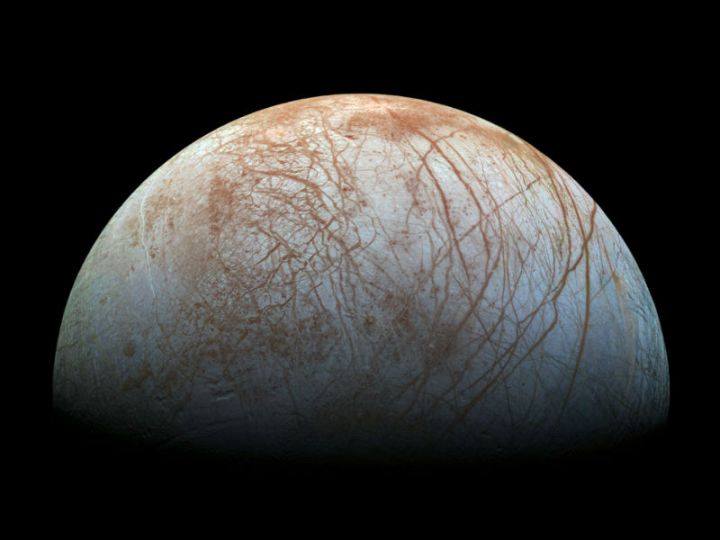
While there has been speculation that this might be an announcement of the discovery of alien life, it likely is not. The presence of a subsurface ocean would definitely move Europa to the top of the list of potential candidates for the presence of such life, however.
Astronomers have long speculated that if there’s any chance of life in our solar system, it’s likely to be found on one of Jupiter’s moons. Europa’s icy crust has long led scientists to suspect a liquid ocean underneath, but Saturn moon Titan — the only moon known to have a dense atmosphere — is certainly another candidate.
“The cycling of oxygen and hydrogen in Europa’s ocean will be a major driver for Europa’s ocean chemistry and any life there, just as it is on Earth,” NASA planetary scientist Steve Vance said in May. Vance and his team had already demonstrated that any potential ocean would have the chemical balance necessary for life.
While Europa is some 500 million miles from the sun, scientists think the key to life there is the moon’s likely warm mantle. The combination of that warm center and the super thick ice crust at the top, which keeps out the coldness of space, could allow any liquid water between to stay at a life-supporting temperature.
What we’re likely to hear on Monday is some type of evidence of movement underneath this crust, which would confirm speculation of liquid water. The next step would be a closer observation, which NASA does plan to do.
A probe would be launched to Europa in the mid 2020s under current plans, and fly by the surface about 45 times while taking high-resolution pictures. There are no plans to take the probe to the surface, but we should at least get some clearer pictures of the interior of Europa using a variety of methods.
Editors' Recommendations
- Check out NASA’s Europa Clipper spacecraft at start of build
- Soundcore Life P3 wireless earbuds offer Active Noise Canceling for under $100
- Valve programmer reveals why there’s no crowbar in Half-Life: Alyx
- NASA’s Mars 2020 rover will search for evidence of ancient life on red planet
- NASA discovers water vapor — and maybe more — on Jupiter’s moon Europa


